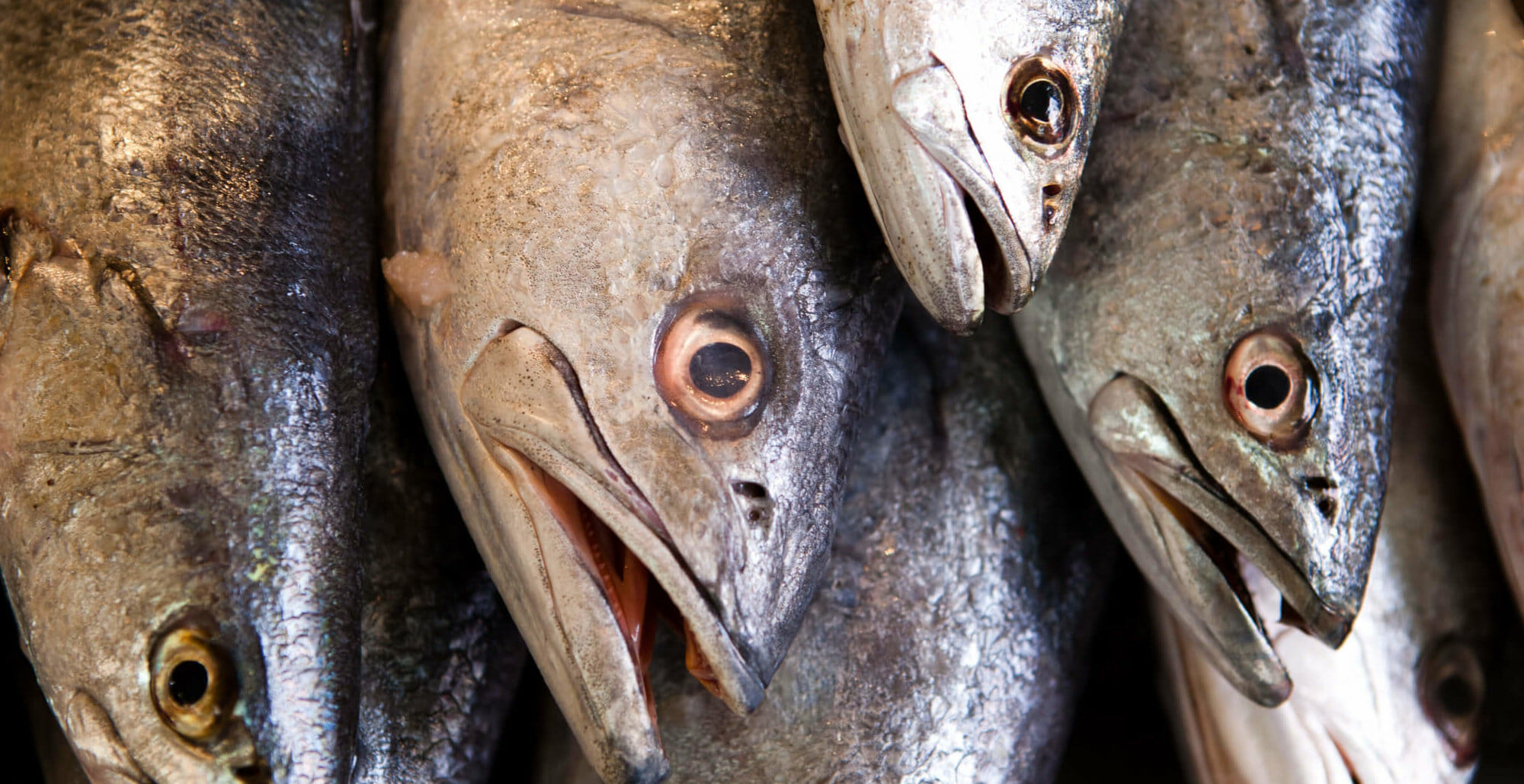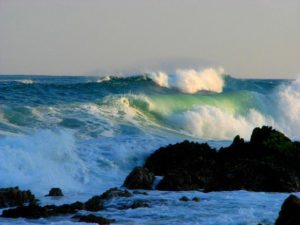Sense of Smell in Fish Diminishes in Acidic Seas
Creatures that can’t smell food are in trouble, and they are even worse off if they can’t scent danger. Climate News Network
Climate News Network
More acidic seas mean greater dangers for fish. Sea bass tested in oceans with the greater levels of dissolved carbon dioxide expected at the end of the century had their sense of smell dramatically reduced by the change.
Since fish depend on smell to forage for food, avoid predators, recognise each other and identify spawning grounds, the loss of smell could mean a more dangerous world.
British and Portuguese scientists report in the journal Nature Climate Change that they used a mix of physiological and behavioural studies to work out how a valuable commercial species – Dicentrarchus labrax, also known as the European bass or loup de mer – responded to higher levels of dissolved carbon dioxide (CO2) in ocean waters.
Oceanic CO2 has risen by 43% since the start of the Industrial Revolution, when humans began burning fossil fuels at ever-increasing rates, to discharge greenhouse gases into the atmosphere, and thus into the seas. By 2100, current levels of this dissolved gas will have more than doubled.
And the researchers found that to detect a scent, under end-of-century conditions, juvenile bass had to be 42% nearer the source.
“First we compared the behaviour of juvenile sea bass at CO2 levels typical of today’s ocean conditions, and those predicted for the end of the century,” said Cosima Porteous of the University of Exeter, UK, who led the research.
“Sea bass in acidic waters swam less and were less likely to respond when they encountered the smell of a predator. These fish were also more likely to ‘freeze’, indicating anxiety.”
The study confirms that economically important species will be affected by changes in ocean water chemistry: as waters warm, fish can migrate to cooler climates, but the impact of acidification will be much the same across the entire planet.
Researchers warned years ago that shifts in what chemists call the pH value of the oceans could seriously affect the citizens of the deep. Carbon dioxide has been implicated in at least one long-ago distant mass extinction event. Increasing acidification threatens corals and other species that employ carbonates. It has been found to alter behaviour or present a hazard to sharks, submarine snails and shrimps, and other species such as sea urchins and rockfish.
Commercial Significance
The new study is hailed as the first to test the olfactory responses of a commercially important species. Although only sea bass were tested, mechanisms of smell in fish are thought to be the same across a wide range of species.
“Their ability to detect and respond to some odours associated with food and threatening situations was more strongly affected than for other odours. We think this is explained by acidified water affecting how odorant molecules bind to olfactory receptors in the fish’s nose, reducing how well they can distinguish these important stimuli,” said Dr Porteous.
And her colleague, Rod Wilson from Exeter, said: “Our intriguing results show that CO2 impacts the nose of the fish directly. This will be in addition to the impact of CO2 on their central nervous system function suggested by others previously, which proposed an impaired processing of information in the brain itself.
“It is not yet known how rapidly fish will be able to overcome these problems as CO2 rises in the future. However, having to cope with two different problems caused by CO2, rather than just one, may reduce their ability to adapt or how long this will take.”
Your support matters…Independent journalism is under threat and overshadowed by heavily funded mainstream media.
You can help level the playing field. Become a member.
Your tax-deductible contribution keeps us digging beneath the headlines to give you thought-provoking, investigative reporting and analysis that unearths what's really happening- without compromise.
Give today to support our courageous, independent journalists.






You need to be a supporter to comment.
There are currently no responses to this article.
Be the first to respond.